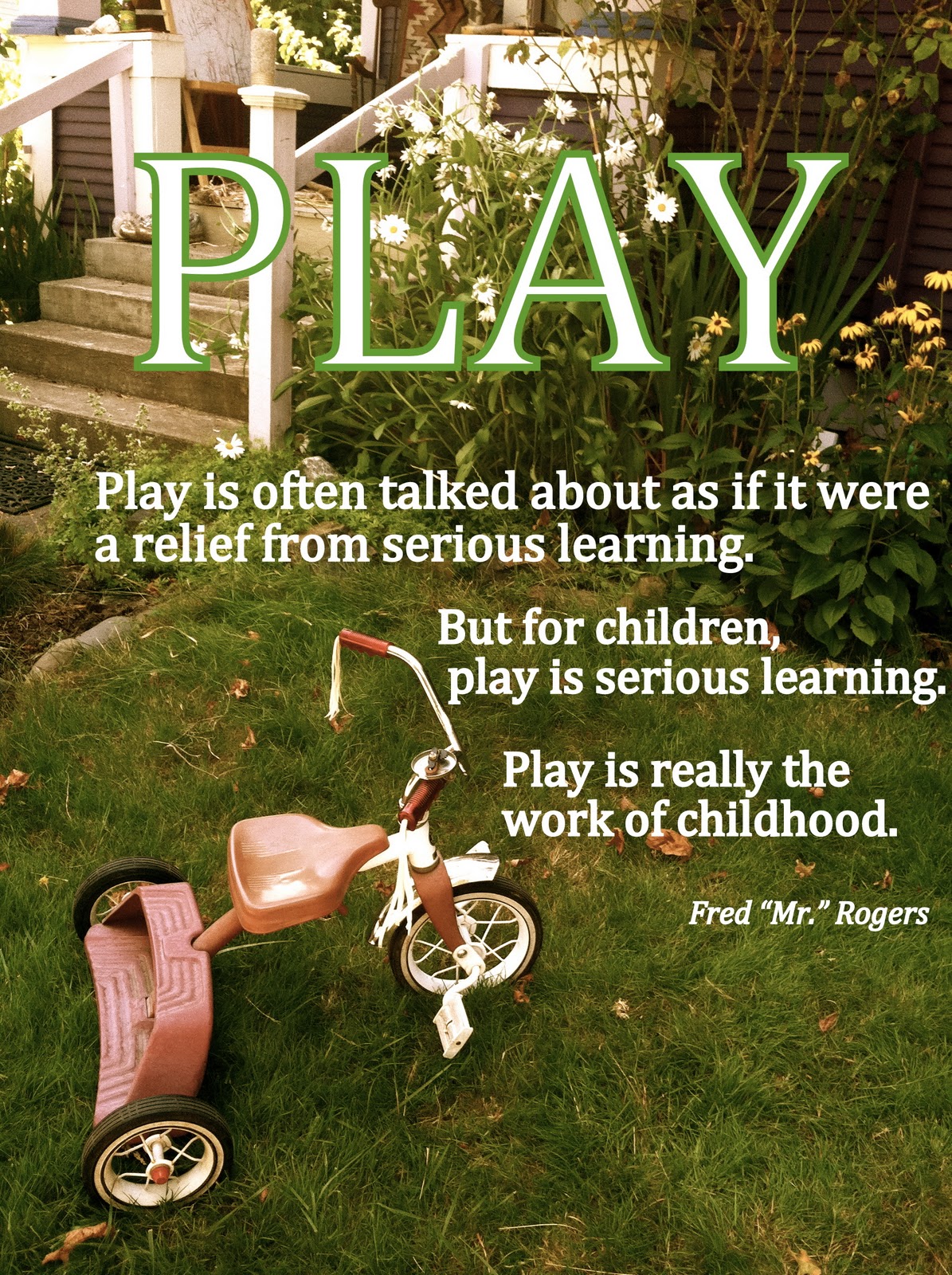Anyway, this week the topic was the importance of "play" in education. The conversation was fairly wide-ranging. I had several things to share...and I sort of surprised my self with how philosophical I was about things. (To be fair, I had been working on a post about philosophy of education the day before. But still...) We got talking about how important it is for students to play--and not just elementary school recess, but all the way on up, and in class as well as out of class. Really thoughtful stuff people were sharing.
 |
| Photo gratuitously pilfered from http://www.moogk-soulis.com/2012/09/its-all-about-play/ |
I have this picture hanging on my office door. I love this quote. Mr. Rogers is--as always--right. Play is serious learning. Play is the work of childhood.
I think the opposite should also be true: serious learning should always have an element of playfulness present as well. Playfulness is not the opposite of serious work. Play can be a useful element in the midst of hard work. My "create an album" assignment might be a good example--full of playfulness, but also a valid way for students to clarify their own understanding, as well as allow me to assess their thinking at the moment.
(Here's the really philosophical bit:)
As we chatted, I shared some of my own thinking about how different philosophies of education will probably think about the value of play. Essentialism sees the primary reason for education to ground students in "the essentials," so essentialist teachers will likely have a less playful teaching practice. Constructivism sees education more about students developing their own understandings, so constructivist teachers would likely embrace a lot more play in their teaching: students playing with ideas, playing with materials, etc.
As I'm reflecting on my own teaching experience--and recognizing the role constructivist thinking has in my own classroom practice--maybe it's not surprising that I'm apt to tell stories, assign my students to build weird contraptions, encourage them to share their thinking, experiment with alternative strategies, and...well...play around myself. I believe each teacher's personal philosophy of education shapes his or her classroom practice.
The chat was stimulating. I'm still thinking about it more than 24-hours later. I was challenged to think about (and rethink--ha!) the role of play in my own teaching practice. Fellow teachers, what do you think? How do you incorporate "play" into your classroom? What sorts of playful assignments do you give? And if you can't think of playful ways to engage your students, why is that?
You know it was a great chat when you are thinking about it 24 hours later! If you have not read Tony Wagner's Creating Innovators, you should! Great book!
ReplyDeleteI have it in my shopping cart on Amazon already! Time to submit that order, I think...
DeleteIt *was* a good chat. Thanks for taking the time to reply!
Another thought on *teachers* being playful from Eric Sheninger: http://www.centerdigitaled.com/training/Googles-8020-Principle-New-Jersey-School.html
ReplyDelete